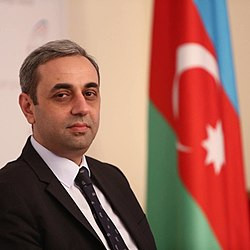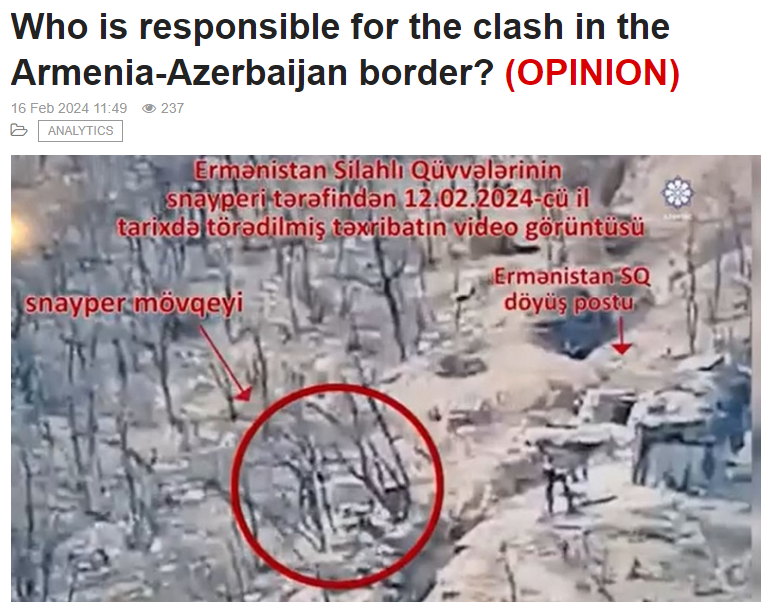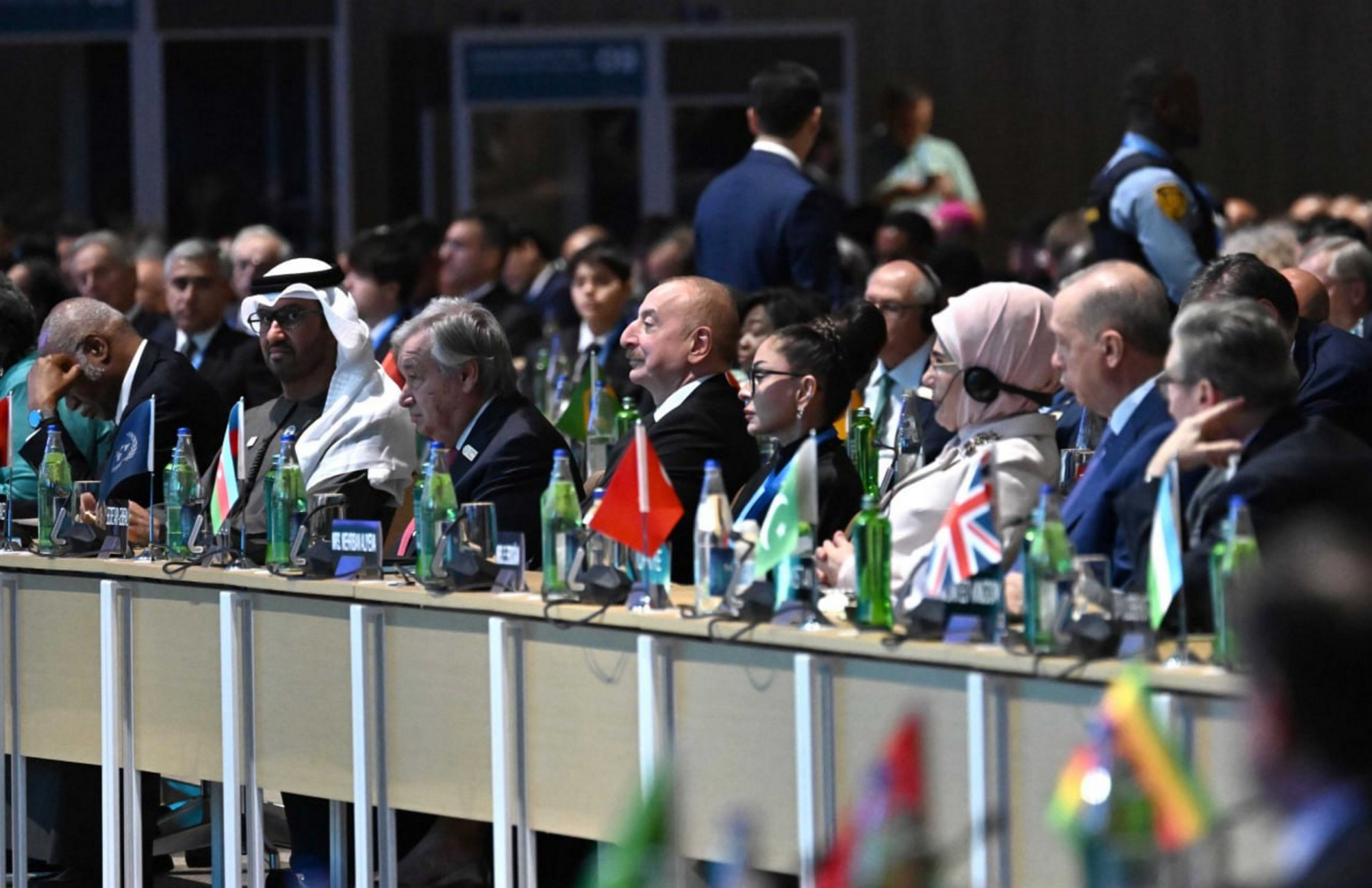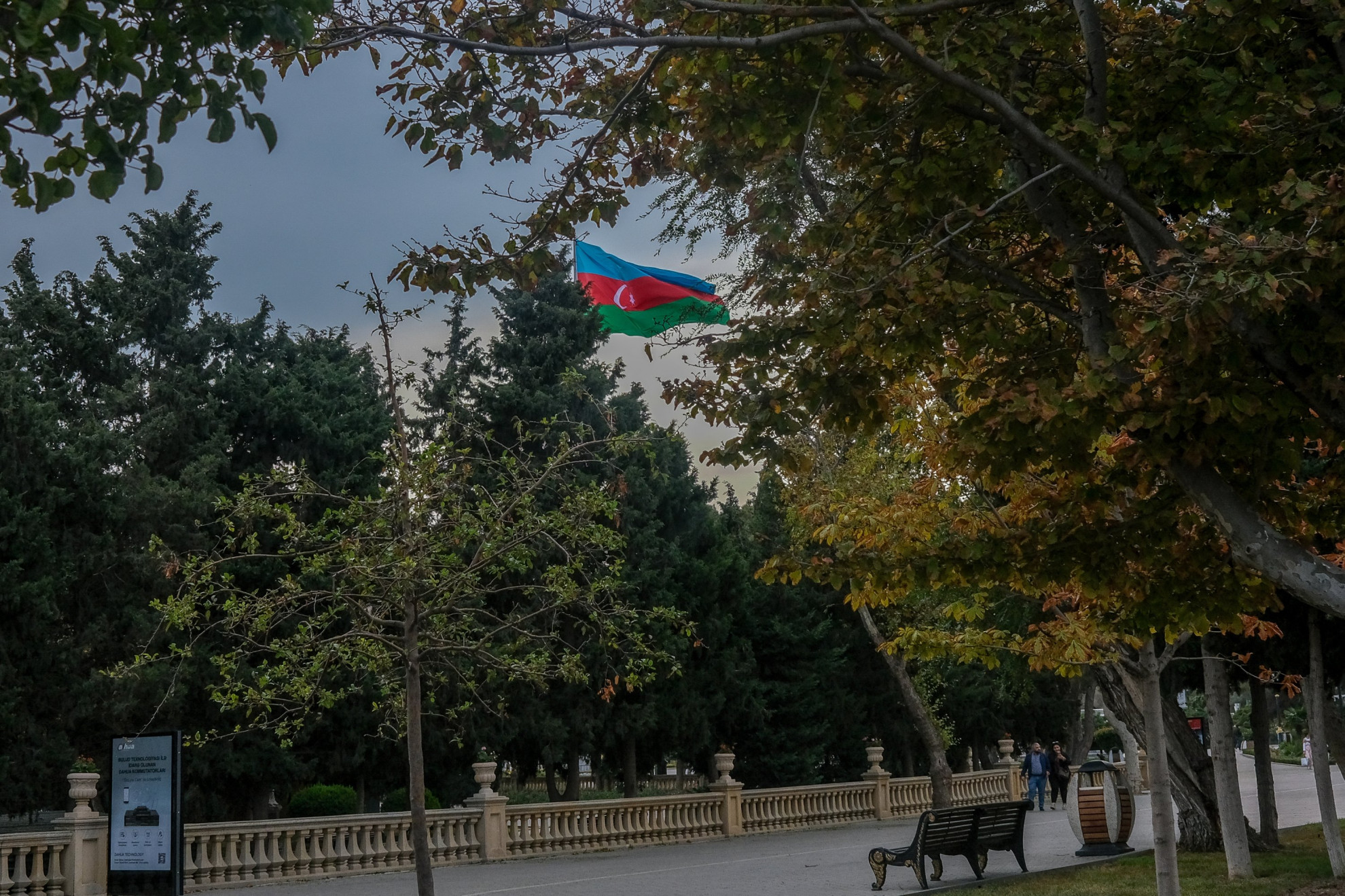On February 12th, tensions rose in the Zangilan region of Azerbaijan as an Armenian sniper wounded an Azerbaijani soldier, disrupting what had been a period of promising peace discussions between the two countries. In response to the attack, Azerbaijani border guards launched 'Operation Retaliation', destroying an Armenian military installation. This incident came at a time when optimism for reconciliation was high, with President Aliyev recently noting a prolonged absence of military clashes along the Armenia-Azerbaijan border, seen as a positive step towards peace. The Azerbaijani foreign ministry condemned the incident, placing blame solely on Armenia's political and military leadership for the escalation.
Following the "Operation Retaliation" by the Azerbaijani army, the Armenian defense ministry released a statement confirming the deaths of four Armenian soldiers. However, details emerged suggesting that these individuals were not regular army personnel or professional soldiers. The age range of the deceased, spanning from 66 to 40 years old, indicated that they were not typical military personnel. Subsequent investigations revealed that these individuals were affiliated with an irregular organization rather than the Armenian Ministry of Defense. Specifically, they were armed members of the "Yerkrapa" organization, founded in 1993. Yerkrapa has a contentious history, due to its involvement in the First Karabakh War and allegations of committing atrocities against civilians and prisoners during the occupation of Karabakh. Founded by Vazgen Sargsyan, who later served as the Minister of Defense of Armenia, the organization initially boasted a membership of 6,000 Armenians, later swelling to 30,000 members. According to Armenian sources, Yerkrapa has two primary objectives: preserving the military spirit and providing a social platform for war veterans seeking to reintegrate into civilian life. Presently, the Yerkrapa Volunteer Association maintains branches across various regions of Russia, as well as in California (USA) and Marseille (France).
Following the signing of the ceasefire agreement in 1994 and the rise of the Karabakh clan to power in Armenia, Yerkrapa transformed into a significant political force in the country's domestic landscape. By 1998, it had amassed considerable influence, becoming the largest group within the Armenian parliament with 69 members. During the summer of that year, Yerkrapa merged with the Republican Party of Armenia, which was led by Serzh Sargsyan, a figure implicated in the Khojaly massacre during the First Karabakh War.
Following the assassination of Vazgen Sargsyan, the founder of Yerkrapa and former Prime Minister of Armenia, in 1999, the organization's influence in Armenian politics began to decline. Manvel Grigoryan, a person known for his brutality toward Azerbaijanis, replaced Sargsyan as leader of the organization. Grigoryan actively engaged in various war crimes, such as plundering Azerbaijani property, torturing prisoners of war, mass murder, and kidnapping during the occupation of the Fuzuli and Jabrail districts.
In Armenia's 2008 presidential election, the organization supported Levon-Ter Petrosyan against Serzh Sargsyan. With Serzh Sargsyan's election, the organization's activities were prohibited. The newly elected administration then disarmed and arrested Yerkrapah members. However, the organization sent armed personnel to Karabakh during the four-day war in 2016.
Manvel Griogryan was arrested in June 2018 on charges of illegal weapons possession and embezzlement of food intended for the army, and died of a heart attack in November 2020, following Armenia's defeat in the Second Karabakh War. After Manvel Grigoryan's death, Sasun Mikayelyan became the head of the organization.
After Nikol Pashinyan was elected Prime Minister in 2018, the organization expressed its loyalty and support for him. Nikol Pashinyan attended the 12th Extraordinary Congress in 2019, one year after being elected Prime Minister. On July 24, 2023, Prime Minister Nikol Pashinyan, Chief of the Armenian General Staff, Minister of Defense, and Speaker of the Parliament, spoke at the 30th anniversary of the Yerkrapah Volunteer Corps, praising the organization's founder, Vazgen Sargsyan. In addition, after the Second Karabakh War Pashinyan allowed the organization to be located on the Azerbaijan-Armenia border. The region where the organization is located is a very sensitive region for the Armenia-Azerbaijan peace process.
Therefore, Armenian government bears responsibility for the recent incident by stationing an irregular armed organization along the border with Azerbaijan. This organization, with a history filled with bloodshed and hate crimes against Azerbaijan, shoulders no accountability for its actions. Its close affiliation with the old Karabakh clan further exacerbates tensions in the region. Additionally, claims of Russian influence over this organization deepen the complexity of the situation, adding to concerns about external involvement in regional conflicts.
The incident took place in close proximity to the EU observer mission, which has been actively monitoring the Armenia-Azerbaijan border since 2022. Surprisingly, the mission has refrained from issuing any comment on the matter. Armenian press reports suggest that a few days prior to the incident, a retired French general visited the Armenia-Azerbaijan border, engaged with European observers, and conducted observations of the Azerbaijani side using binoculars. This incident highlights a growing trend known as "binocular diplomacy," where representatives from various countries, visiting Armenia, employ binoculars to monitor activities across the border into Azerbaijan, often seen as a form of subtle diplomatic messaging or surveillance.
Following the arrival of the French general in the region, tensions escalated. The Azerbaijani Ministry of Foreign Affairs summoned the EU representative, alleging that the mission had violated agreements made during the European Political Community summit in Prague in November 2022. Initially, a delegation of 50 observers would stay for a two-month period; however, the EU unilaterally extended the mission without Azerbaijan's approval. Subsequently, Canada also joined the mission, expanding its size first to 200 personnel and then to 1000. Notably, the mission primarily comprised retired German and French gendarmes. Adding to the complexity, recent reports indicate that the EU has begun arming Armenia, with weapons sourced from France. Amidst these developments, an incident occurred where Armenian soldiers injured an Azerbaijani soldier on the border, prompting criticism of the EU mission's silence on the matter. On the same day, Armenian Foreign Minister Ararat Mirzoyan met with EU Commissioner for Foreign Policy and Security Jozef Borell in Brussels, where Mirzoyan and Borell groundlessly accused Azerbaijan of wrongdoing.
In conclusion, the Armenian soldier who wounded the Azerbaijani soldier belongs to a organization that has operated in Armenia since 1993, known for its involvement in massacres during the First Karabakh War. This organization received recognition and support during the Pashinyan regime. Pashinyan's decision to station the administration near the border with Azerbaijan, a strategic area for the organization, further escalated tensions. The Armenian government bears primary responsibility for this incident, as it deployed members of this irresponsible armed group on the border. The Armenian administration should withdraw such organizations from the border so that they could not sabotage the ongoing peace process.
https://news.az/news/who-is-responsible-for-the-clash-in-the-armenia-azerbaijan-border-opinion








